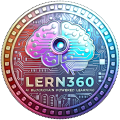Lea la exención de responsabilidad y la advertencia de riesgo.
DESCARGO DE RESPONSABILIDAD & amp; ADVERTENCIA DE RIESGO
Esta oferta se basa en información proporcionada únicamente por el oferente y otra información públicamente disponible. El evento de venta o intercambio de fichas no tiene relación alguna con ICOholder e ICOholder no participa en él (incluido cualquier soporte técnico o promoción). Las ventas de tokens enumeradas de personas con las que ICOholder no tiene relación se muestran solo para ayudar a los clientes a realizar un seguimiento de la actividad que tiene lugar dentro del sector token general. Esta información no pretende constituir un asesoramiento en el que debe confiar. Debe obtener asesoramiento profesional o especializado o llevar a cabo su propia diligencia debida antes de tomar, o abstenerse de, cualquier acción en función del contenido de nuestro sitio. Los términos y condiciones que ingresen los contribuyentes con respecto a la adquisición de Tokens se encuentran entre ellos y el emisor del Token y ICOholder no es el vendedor de dichos Tokens. ICOholder no tiene ninguna responsabilidad legal por las declaraciones realizadas por terceros con respecto a cualquier venta de Token y cualquier reclamo por incumplimiento de contrato también debe realizarse directamente contra la entidad emisora del Token que se detalla en este documento.
Si tiene alguna inquietud acerca de la naturaleza, propiedad o legalidad de esta venta de tokens o de las personas involucradas en ella, póngase en contacto con info@icoholder.com . con información detallada sobre sus inquietudes.










